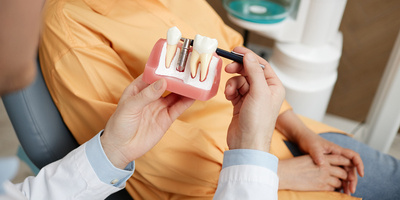
Dental Implant 101: A Comprehensive Guide
Dental health is a critical component of overall well-being, influencing not only our ability to eat and speak...
Read moreHelp patients book appointments with you on Solv. It's free!
0 instant-book locations
Help patients book appointments with you on Solv. It's free!
Lead Testing is a diagnostic test used to measure the levels of lead in the blood. Lead is a toxic metal that can have harmful effects on various body systems, especially in children, pregnant women, and individuals with occupational lead exposure. This test is essential for early detection and prevention of lead poisoning.
If you reside in Georgia, Vermont, and have risk factors for lead exposure or suspect lead poisoning, Lead Testing is recommended. Risk factors may include living in an older home with lead-based paint, working in lead-related industries, or having a history of pica (ingesting non-food items) in children.
In children, Lead Testing is especially crucial as lead exposure can cause developmental delays, learning difficulties, and behavioral problems. Children should be screened for lead exposure at ages 1 and 2 years, and more frequently if they are at higher risk.
Lead Testing is typically performed using a small blood sample, usually obtained from a fingerstick or venipuncture. Blood samples are then sent to a laboratory for analysis.
The interpretation of Lead Testing results is based on the concentration of lead in the blood. Lead levels are measured in micrograms per deciliter (μg/dL). Elevated lead levels indicate lead exposure, and additional testing and interventions may be needed to address lead poisoning.
Preventing lead exposure is essential for protecting individuals from the harmful effects of lead poisoning. Measures to reduce lead exposure include:
If Lead Testing indicates elevated lead levels, healthcare providers will work with individuals and families to identify the source of lead exposure and implement necessary interventions to reduce exposure and prevent lead poisoning.
Early detection and prevention through Lead Testing are critical in protecting the health and well-being of individuals, especially children, from the harmful effects of lead exposure.

Updated on Dec 25, 2024
Chickenpox Vaccine in Georgia
Ear Wax Removal in Georgia
Flu Shot in Georgia
Hepatitis Vaccine in Georgia
Measles Vaccine (MMR) in Georgia
Physical Exam in Georgia
Shingles Vaccine in Georgia
Sports Physicals in Georgia
Tetanus Shot in Georgia
Typhoid Vaccine in Georgia
Yellow Fever Vaccine in Georgia
A1C Test in Georgia
Allergy Testing in Georgia
Basic Metabolic Panel in Georgia
Blood Test in Georgia
CMP Test in Georgia
Cholesterol Test in Georgia
Diagnostic Test in Georgia
Drug Test in Georgia
Flu Test in Georgia
Glucose Test in Georgia
Lab Tests in Georgia
Pregnancy Test in Georgia
STD Testing in Georgia
Strep Test in Georgia
TB Test in Georgia
Urinalysis in Georgia
Vitamin D Test in Georgia
Tips, advice, news—your resource to stay healthy and safe while improving your experience with healthcare providers when you need them.